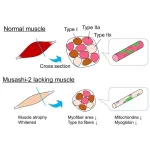(Press-News.org) Milan, Italy: Young children growing up in towns and cities suffer from more respiratory infections than those who grow up in the countryside, according to research presented at the European Respiratory Society International Congress in Milan, Italy [1].
A second study, presented at the Congress and published in Pediatric Pulmonology today (Monday) [2], shows that factors such as attending day care, living in a damp home or near dense traffic increase the risk of chest infections in young children, while breastfeeding reduces the risk.
Researchers say that some children, who are otherwise healthy, can suffer with repeated infections, so it is important to understand why this is and look for ways to help.
The first study was presented by Dr Nicklas Brustad, a researcher and physician on the Copenhagen Prospective Studies on Asthma in Childhood (COPSAC) based at Gentofte Hospital and the University of Copenhagen, Denmark. It included 663 children and their mothers who took part in the research from pregnancy until the children were three years old.
Researchers recorded whether the children were growing up in urban or rural areas and how many respiratory infections they developed. This revealed that children living in urban areas had an average of 17 respiratory infections, such as coughs and colds, before the age of three compared to an average of 15 infections in children living in rural areas.
The researchers also carried out detailed blood tests on the mothers during pregnancy and on their new-born babies, and analysed the children’s immune systems when they were four weeks old. They found that children living in urban areas had differences in their immune systems compared to those living in rural areas. There were also differences in the blood samples from the mothers and babies that correlated with the difference in living environment and number of respiratory infections.
Dr Brustad said: “Our findings suggest that urban living is an independent risk factor for developing infections in early life when taking account of several related factors such as exposure to air pollution and starting day care. Interestingly, changes in the blood of pregnant mothers and newborn babies, as well as changes in the new-born immune system, seem to partly explain this relationship.
“Our results suggest that the environment children live in can have an effect on their developing immune system before they are exposed to coughs and colds. We continue to investigate why some otherwise healthy children are more prone to infections than others and what the implications are for later health. We have several other studies planned that will look for risk factors and try to explain the underlying mechanisms using our large amount of data.”
The second study was presented by Dr Tom Ruffles from Brighton and Sussex Medical School and University Hospitals Sussex NHS Foundation Trust, Brighton, UK. It included data on 1344 mothers and their children living in Scotland and England. The mothers completed detailed questionnaires when their children were a year old and again when their children where two years old. These included questions on chest infections, symptoms such as coughing and wheezing, respiratory medication, and exposure to potential environmental risk factors.
Analysis of the questionnaires revealed that breastfeeding for longer than six months helped protect babies and children from infections, while attending day care increased the risk. Young children living in homes with visible damp were twice as likely to need treatment with an inhaler to relieve respiratory symptoms and twice as likely to need treatment with a steroid inhaler. Living in an area with dense traffic increased the risk of chest infections, and exposure to tobacco smoke increased the risk of coughing and wheezing.
Dr Ruffles said: “This research provides some important evidence about how we can help reduce chest infections in babies and toddlers. The benefits of breastfeeding are well-established, and we should continue to support mothers who want to breastfeed their babies. We should also be making every effort to reduce exposure to infections in day care, keep homes free of damp and mould, reduce tobacco smoking and cut air pollution.”
Co-researcher Professor Somnath Mukhopadhyay, also from Brighton and Sussex Medical School and University Hospitals Sussex NHS Foundation Trust, added: “The link between damp mouldy housing and the need for these very young children to take asthma treatments emphasises how urgently we need legislation to tackle mould and damp in social housing. For example, here in the UK we want to see rapid implementation of Awaab’s Law, which will force social landlords to fix damp and mould within strict time limits.” Awaab’s Law was proposed following the death of two-year-old Awaab Ishak, caused by the damp and mould in his local-authority home.
Professor Myrofora Goutaki, who is chair of the European Respiratory Society’s group on Paediatric respiratory epidemiology and was not involved in the research, says: “We know that some young children suffer with recurrent coughs and colds, and this can lead on to conditions such as asthma as they grow older. It’s important that we understand any factors that might be contributing to this, such as the conditions where children live and where they are cared for. The more we understand about these factors, the more we can do to protect the developing lungs of these young children.”
END
City living raises the risk of respiratory infections in babies and young children
Research also shows day care, damp homes and traffic pollution are risk factors
2023-09-11
ELSE PRESS RELEASES FROM THIS DATE:
Healthy guts containing diverse and mature bacteria are linked to less allergy-related wheezing and asthma in early childhood
2023-09-10
Milan, Italy: Babies and young children with more mature communities of bacteria present in their gut are less likely to develop allergy-related wheezing or asthma, according to research presented at the European Respiratory Society International Congress in Milan, Italy [1].
These communities of bacteria, known as microbiota, develop in the human body during the early years of life and are involved in processes that are helpful to the body, such as synthesising vitamins and boosting the immune system, or occasionally unhelpful, such as the role they play ...
Aldosterone synthase inhibition with lorundrostat for uncontrolled hypertension
2023-09-10
About The Study: Among individuals with uncontrolled hypertension in this randomized clinical trial that included 200 participants, use of lorundrostat was effective at lowering blood pressure compared with placebo, which will require further confirmatory studies.
Authors: Steven E. Nissen, M.D., of the Cleveland Clinic Foundation, is the corresponding author.
To access the embargoed study: Visit our For The Media website at this link https://media.jamanetwork.com/
(doi:10.1001/jama.2023.16029)
Editor’s Note: Please see the article for additional ...
Benmelstobart plus anlotinib and chemotherapy shows benefit for patients with extensive-stage small-cell lung cancer
2023-09-10
[Singapore -- 10:35 a.m. SGT--September 10, 2023] - The combination of benmelstobart, anlotinib, and chemotherapy demonstrated significant benefits compared to placebo and chemotherapy in terms of median progression-free survival and overall survival for patients with extensive-stage small-cell lung cancer.
The research was presented today at the International Association for the Study of Lung Cancer 2023 World Conference on Lung Cancer in Singapore.
Extensive-stage small-cell lung cancer is a challenging malignancy to treat, ...
Exhaled breath analysis shows promise in detecting malignant pleural mesothelioma
2023-09-10
[Singapore -- 10:35 a.m. SGT--September 10, 2023] -- Identifying and analyzing volatile organic compounds in exhaled breath of patients with malignant pleural mesothelioma showed promise as a screening method for MPM, according to research presented today at the International Association for the Study of Lung Cancer (IASLC) 2023 World Conference on Lung Cancer in Singapore.
Malignant pleural mesothelioma (MPM) is a challenging disease with limited treatment options and a poor prognosis. To improve ...
Six-year follow-up data on CheckMate 227 survival and quality of life benefits unveiled for patients with metastatic NSCLC and nivolumab + ipilimumab treatment
2023-09-10
[Singapore -- 10:35 a.m. SGT--September 10, 2023) -- The International Association for the Study of Lung Cancer (IASLC) World Conference on Lung Cancer 2023 in Singapore is set to witness a monumental breakthrough in the field of metastatic non-small cell lung cancer (NSCLC) treatment. Research findings from the CheckMate 227 trial will be presented, shedding light on the extraordinary six-year survival and quality of life benefits associated with first-line nivolumab + ipilimumab therapy.
CheckMate 227 Part 1 showed that a combination ...
KRYSTAL-1 trial finds that adagrasib demonstrates durable clinical activity in patients with KRAS-G12C mutations
2023-09-10
[Singapore -- 10:35 a.m. SGT--September 10, 2023] — The oral, selective KRAS G12C inhibitor The oral, selective KRAS G12C inhibitor KRAS-G12C inhibitor adagrasib demonstrated durable clinical activity, with a median overall survival of 14.1 months and approximately one in three patients alive at two years, according to research presented today at the International Association for the Study of Lung Cancer (IASLC) 2023 World Conference on Lung Cancer in Singapore.
KRAS-G12C mutations occur in approximately 14% of patients with NSCLC. The KRYSTAL-1 study, a multi-cohort Phase 1/2 trial, evaluated adagrasib as a monotherapy or in combination for patients with KRAS-G12C-mutated ...
Stigmatization of smoking-related diseases is a barrier to care and the problem may be on the rise
2023-09-10
[Singapore -- 10:35 a.m. SGT--September 10, 2023) –The stigma that patients face when diagnosed with lung cancer is associated with poorer psychosocial outcomes, including distress and isolation, delayed help-seeking, and concerns about the quality of care, according to research presented today at the International Association for the Study of Lung Cancer (IASLC) 2023 World Conference on Lung Cancer in Singapore.
The study, conducted by a team of researchers led by Nathan Harrison, a behavioral scientist and PhD student ...
Color of phlegm can predict outcomes for patients with the lung disease, bronchiectasis
2023-09-10
Milan, Italy: The colour of the phlegm from patients with the lung disease bronchiectasis can indicate the degree of inflammation in their lungs and predict their future outcomes, according to new research presented at the European Respiratory Society International Congress in Milan, Italy [1].
The study of nearly 20,000 patients from 31 countries is the first time that the colour of phlegm (also known as sputum) has been shown to provide clinically relevant information that reflects prognoses and, therefore, can aid decisions about ...
Scientists set sights on protein that controls skeletal muscle composition
2023-09-09
Tokyo, Japan – Researchers from Tokyo Metropolitan University have shown that the protein Musashi-2 (Msi2) plays a key role in the regulation of mass and metabolic processes in skeletal muscle. They studied mice with the Msi2 gene knocked out and found reduced muscle mass due to fewer type 2a muscle fibers. Myoglobin and mitochondria were also reduced. Type 2a fibers respond sensitively to training and illnesses; insights into their regulation will prove valuable in new therapies.
Skeletal muscle fibers are truly fascinating in how responsive they are. With training, we can significantly improve muscle mass, strength and endurance. On the other hand, with age or extended ...
More cases of breast cancer detected with the help of AI
2023-09-09
One radiologist supported by AI detected more cases of breast cancer in screening mammography than two radiologists working together, reports the ScreenTrustCAD study from Karolinska Institutet in The Lancet Digital Health. The researchers say that AI is now ready to be implemented in breast cancer screening.
For over 30 years, screening mammography has been an important key in reducing breast cancer mortality rates. However, challenges include a lack of radiologists and that not all cancers are detected. Several retrospective studies have shown that artificial ...
LAST 30 PRESS RELEASES:
Study reveals insights about brain regions linked to OCD, informing potential treatments
Does ocean saltiness influence El Niño?
2026 Young Investigators: ONR celebrates new talent tackling warfighter challenges
Genetics help explain who gets the ‘telltale tingle’ from music, art and literature
Many Americans misunderstand medical aid in dying laws
Researchers publish landmark infectious disease study in ‘Science’
New NSF award supports innovative role-playing game approach to strengthening research security in academia
Kumar named to ACMA Emerging Leaders Program for 2026
AI language models could transform aquatic environmental risk assessment
New isotope tools reveal hidden pathways reshaping the global nitrogen cycle
Study reveals how antibiotic structure controls removal from water using biochar
Why chronic pain lasts longer in women: Immune cells offer clues
Toxic exposure creates epigenetic disease risk over 20 generations
More time spent on social media linked to steroid use intentions among boys and men
New study suggests a “kick it while it’s down” approach to cancer treatment could improve cure rates
Milken Institute, Ann Theodore Foundation launch new grant to support clinical trial for potential sarcoidosis treatment
New strategies boost effectiveness of CAR-NK therapy against cancer
Study: Adolescent cannabis use linked to doubling risk of psychotic and bipolar disorders
Invisible harms: drug-related deaths spike after hurricanes and tropical storms
Adolescent cannabis use and risk of psychotic, bipolar, depressive, and anxiety disorders
Anxiety, depression, and care barriers in adults with intellectual and developmental disabilities
Study: Anxiety, gloom often accompany intellectual deficits
Massage Therapy Foundation awards $300,000 research grant to the University of Denver
Gastrointestinal toxicity linked to targeted cancer therapies in the United States
Countdown to the Bial Award in Biomedicine 2025
Blood marker from dementia research could help track aging across the animal world
Birds change altitude to survive epic journeys across deserts and seas
Here's why you need a backup for the map on your phone
ACS Central Science | Researchers from Insilico Medicine and Lilly publish foundational vision for fully autonomous “Prompt-to-Drug” pharmaceutical R&D
Increasing the number of coronary interventions in patients with acute myocardial infarction does not appear to reduce death rates
[Press-News.org] City living raises the risk of respiratory infections in babies and young childrenResearch also shows day care, damp homes and traffic pollution are risk factors










